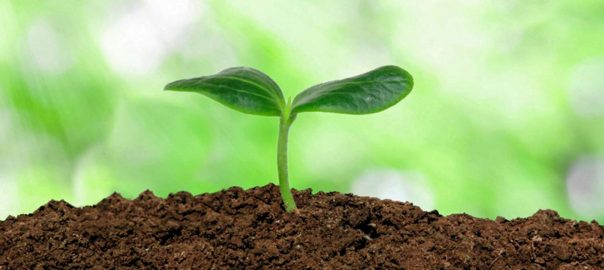A message delivered at Faith Lutheran in Clive, as part of a pulpit swap weekend, based on three parables from Matthew 13:31-33, 44.
Dad, what is heaven like?
My son Graham, who is nine, asked this exact question earlier this week. At the time our family had just finished dinner. Up next for him normally is the brushing of teeth, the putting on of pajamas, the saying of goodnight blessings, the heading upstairs to bed.
And for my wife and I? We had our latest installment of Netflix and chill, aka Ted Lasso, season 3, ready to go.
The question lingered, left unanswered. It dared interrupt our evening routine.
I put down the remote. How best to respond? I yawned.
Perhaps the extra oxygen boost would help me answer well.
It is a world without pain, I began. There is no death, no war, no disease. Instead, there is only kindness, people care for each other, everyone lives in harmony. Won’t that be great, I concluded? Graham nodded slightly. The explanation is reductive – defining something by what it isn’t is, well, less than ideal. This is like describing a pb&j sandwich without mentioning peanut butter, jelly, or bread. Anyone want to take a stab at that?
Hmm. Perhaps another approach would be better.
What do you think heaven will be like, Graham? He paused to reflect.
There will be lots of joy and happiness, he began. You can say anything, and it will appear.
I interjected. Oh, wow. What would you ask for?
All the Pokemon cards in the world.
To get a bunch of video games I liked.
To remember only good things.
While all that may just be – sign me up for the video games, a shared father-son passion – this understanding, too, seemed incomplete. Surely this grandiose destination has more to it than God as personal genie in a bottle, granting every wish.
Graham then went upstairs to brush his teeth, returning a bit later for our evening blessing. Jesus loves you, and so do I, we both said, marking each other’s foreheads with a sign of the cross.
Reflecting on our conversation something wasn’t sitting quite right with me. Graham’s question was filled with child-like wonder, a natural curiosity, came straight from the heart. Surely, I could have offered him a better response than that.
Kingdom
Today’s gospel, somewhat serendipitously, also centers on describing the kingdom of heaven. Unlike my feeble attempts a few nights ago, Jesus doesn’t start with an outline of what heaven is not. And he doesn’t use wish fulfillment to explain it either.
Instead, Christ uses the language of parable to help us better understand.
With several short parables he shares, in human, earthly terms, in ways we just might grasp.
The kingdom of heaven is like:
– A mustard seed
– Yeast in bread
– Hidden treasure
Mustard seeds start small, but grow into something grand. Yeast helps bread rise, adding strength to the dough. Hidden treasures, when found, are cause for celebration.
On the surface the takeaways seem clear. Heaven –
is grand,
nourishes us,
is a treasure to seek.
If we want a simple, feel-good takeaway of the divine that –
dots the i’s,
crosses the t’s,
fits neatly in a box,
wrapped in a bow –
We can leave it at that. Done clap. Message complete.
Unfortunately, at least for anyone hoping for a very short sermon, these parables contain more. It is worth checking out what else these parables contain too.
Consider the mustard seed. It wouldn’t have been deliberately sown in the neat rows of a farmer’s field. The mustard seed was an outlier, an undesirable. It was different, mixed in among the others. Similar to the gospel reading last week the mustard seed wasn’t supposed to be there. Yet it wasn’t plucked out. Instead, it was left to grow in place.
Consider the bread. Yeast in bread, these days, at least for many of us, is a win. It adds flavor, height, texture. But yeast is also a leavening agent, which went against Jewish standards of the time. You shall eat nothing leavened, says Exodus 12:15. And yet the woman in this parable intentionally mixes this impurity in the batter, all the same.
Consider the hidden treasure. It was found in a field not owned by the man. Once found he reburied it, and then bought the field – seemingly to get the treasure – without telling the owner it was there. At best this is deception. And it might just be against the law.
Based on this the kingdom of heaven is also like a –
A weed, that grows to support all sorts of life;
A woman, who breaks religious norms;
A man, who, to acquire treasure, becomes a thief.
Are you feeling a little uncomfortable? Because, personally speaking, this makes me want to squirm. This version of the divine can’t be put in a box with neat 90-degree corners. You can’t tie it together with a big fancy bow. Because this view of heaven is also invasive, unpredictable, hidden, arguably even criminal. Heaven, from this vantage, is pure surprise.
This version is akin to the voice of God, whispering in our ear, saying see that boundary there? Is that your boundary? Or is it mine?
For often God calls holy what we do not.
These heavenly parables ask us to question assumptions, break rules, reevaluate what we thought we knew.
Said differently, the kingdom of heaven is so much more than any simple explanation can contain.
In the Lord’s Prayer we petition that thy will be done, on earth as it is in heaven. That is to say God’s kingdom can be found scattered all around in the here and now. And finding this kingdom in new-to-you ways? That can be downright fun.
Today
Thinking back to my son’s question earlier this week – what is heaven like – if I could have a redo, using the language of surprise, it might go something like this…
The kingdom of heaven is like having Breakfast for Dinner, complete with pancakes drowned in butter and syrup, crispy bacon, eggs prepared your favorite way. Who knew dishes once relegated to the morning could be so great at night?
The kingdom of heaven is like hearing a female pastor preach for the very first time and going whoa, that was amazing! And then wondering, who else in this big, ever-changing world of ours, might God be calling to lead?
The kingdom of heaven is like planting a garden of tomatoes and getting a strawberry plant that yields a bumper crop of the best fruit you’ve ever had.
The kingdom of heaven is like the father at a rest stop with his hungry daughter. The wall of vending machines only takes cash; he has none. But there, on the ground the father finds just enough change to buy a snack that makes his daughters day. Yes!
The kingdom of heaven is like the manager who changed company policy and started hiring people with tattoos and piercings. The manager then realized something: the new staff were some of the best employees the manager had.
You see son, I’d tell him, heaven is many things. It is –
– seeing the goodness of people in the unlikeliest of places,
– challenging assumptions that keep God’s children down,
– thinking you have it all figured out, then learning you might be wrong.
The kingdom of heaven is waiting to be discovered, understood, embraced. Finding heaven among us is a beautiful, joyous pursuit. Finding heaven is a pursuit, my friends, you are never too young, and never too old, to begin. Amen.



 .
.